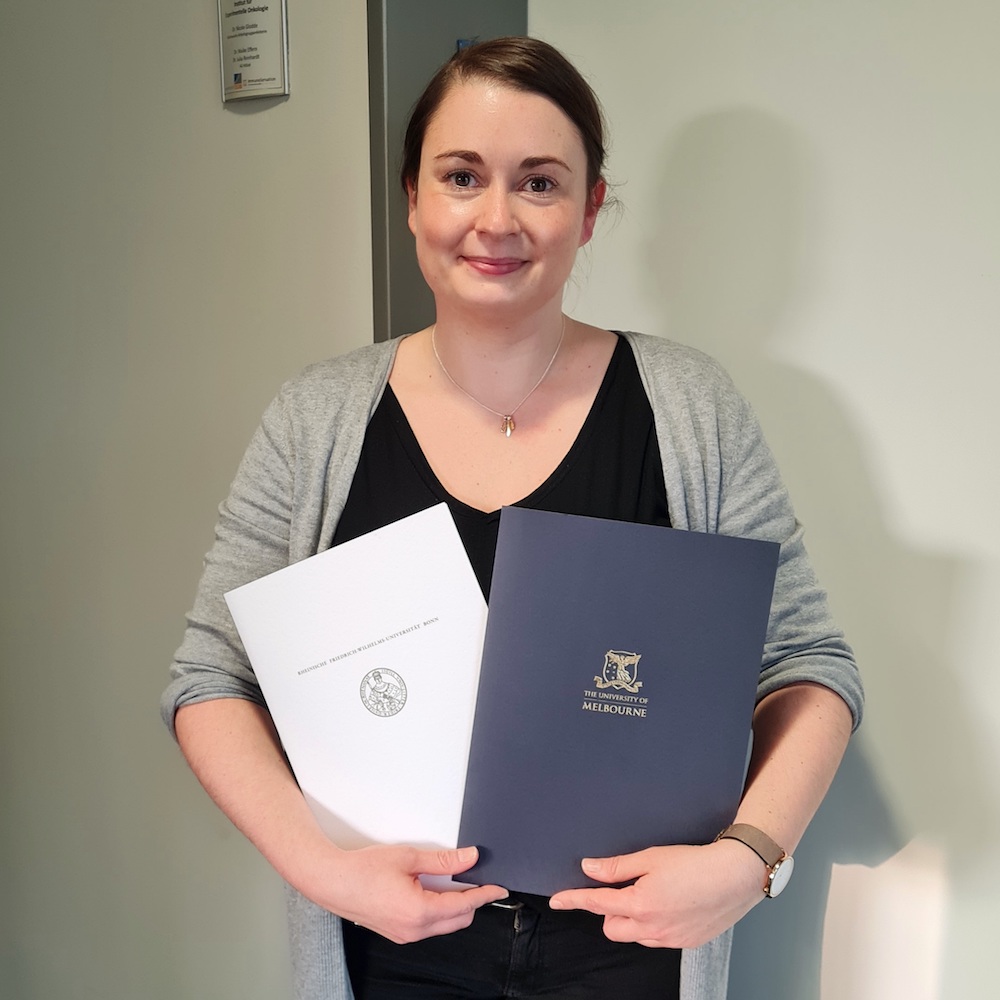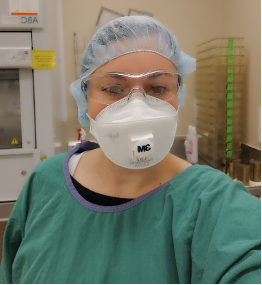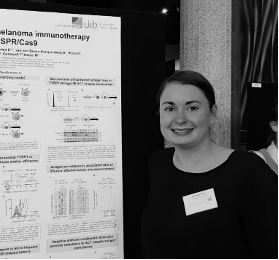During my PhD I worked on understanding melanoma resistance mechanisms towards immunotherapy using a novel CRISPR/Cas9-based method. I was a Bonn-based student and spent a total of 14 months in Melbourne. I got interested in the Graduate School as it offered the opportunity to be part of two pretty different research institutes, two different labs and have two supervisors with different expertise. This not only allowed me to learn different skill sets but also to extend my research network and learn how labs can be run differently. The first half of my PhD project was very much focussed on establishing a novel CRISPR/Cas9-based method in melanoma cells. This meant that I would spend almost the entire day doing molecular cloning or sitting in the tissue culture room trying to get those newly generated CRISPR/Cas9 plasmids into my melanoma cells.
The second half on my PhD project was more focussed on in vivo mouse work. I spent a lot of time in the animal facilities in Bonn or in Melbourne. This often resulted in me doing big flow cytometry experiments trying to figure out how melanoma cells escape antigen-specific T cells during immunotherapy. During my time as a PhD student, I attended a lot of national and international meetings. For one of those meetings, I could secure a DAAD (German Academic Exchange Service) travel grant and for two of those meetings I was awarded a poster award for presenting my research on an academic poster. I was awarded the Seqirus PhD Oration Award for giving my completion seminar at the Peter Doherty Institute for Infection and Immunity.
Every PhD is challenging but moving labs and even continents in the middle of a PhD is extra challenging. During my time as a PhD student in this program, I found that communication is key to success. It is very important to communicate with BOTH of your supervisors. However, this can be challenging with one supervisor always being in a different time zone. Both of your supervisors should feel responsible for you all the time and not only when you are present in their lab. But in the end you are responsible for the success of your PhD even if that means “forcing” both of your supervisors to communicate with you and with one another.
One thing that I enjoyed most about this international graduate school was being part of a group of students and always having someone to talk to who was experiencing similar problems. Another advantage of being in a graduate school is that there are coordinators who are trying to solve all the problems that occur during this time. Although not everything went entirely smoothly as I was part of the first cohort of students, in the end all students successfully finished their PhDs. I am currently working as a Postdoc in the Institute of Experimental Oncology at the University Hospital Bonn. I will continue to work on deciphering resistance mechanisms in melanoma towards immunotherapy. I have created a unique research profile for myself by uniting the skills I learned in the different labs during my PhD. The Bonn lab had a strong focus on molecular biology, melanoma plasticity and immunotherapy, whereas the Melbourne lab had a strong focus T cell biology.
I will continue to work on deciphering resistance mechanisms in melanoma towards immunotherapy but with a stronger focus on T cell biology. Another important skill I learned during my time in Melbourne is how important science communication is. I really learned to appreciate the power of science outreach projects and what social media can do for my own research. Since then, I became part of the local Bonn Pint of Science team and a content hub initiative launched by the Imunosensation Cluster of Excellence in Bonn. In order to prepare for a future career as a researcher, I applied to a mentoring program. This program is supposed to support my future career plans and help me acquire new skills such as writing grants. These skills will become important during the next steps towards a successful career in science.



Maike Effern
“Modelling melanoma control by immunotherapy and tissue-resident memory T cells using CRISPR/Cas9-based approaches”